Can Tea Tree Oil Actually Prevent Hair Loss? We Asked Dermatologists
"Hearst Magazines and Yahoo may earn commission or revenue on some items through these links."
Essential oils carry plenty of benefits. Tea tree oil in particular is one of the most popular options because of its potential healing properties. Derived from the leaves of the tea tree—which is native to Australia—the oil has been used for decades as a natural germ killer and as a medicine, according to The National Center for Complementary and Integrative Health.
Meet Our Experts: Toyin Falola, MD, board-certified dermatologist at Ro, Brendan Camp, MD, FAAD, double board-certified dermatologist at MDCS Dermatology in New York City and clinical assistant professor of dermatology at Weill Cornell Medical College
It's also another oil that's made its way into haircare products because of the alleged benefits it provides, including treating lice and scalp conditions. But according to Toyin Falola, MD, a board-certified dermatologist at Ro, there's a lack of scientific evidence to fully back these claims, and if you're curious on whether or not you should add tea tree oil to your haircare routine, WH has you covered on all the details, benefits, safety tips, and more.
The benefits of using tea tree oil for hair
Before buying and applying tea tree oil, you should make sure that it's the right product for your needs. Below, check out some of the top benefits of tea tree oil, according to dermatologists.
It may help with dandruff: Tea tree oil has anti-fungal properties, which can fight yeast or yeast-related conditions, such as seborrheic dermatitis, commonly known as dandruff. Symptoms of dandruff include flaky, pink, and itchy patches on the scalp, ears, and eyebrows. "Tea tree oil can potentially treat skin yeast, such as Malassezia, which also plays a role in the formation of [dandruff]," says Brendan Camp, MD, a double board-certified dermatologist at MDCS Dermatology in New York City.
It helps balance oil production: Depending on your hair type, you may frequently experience oily scalp. If you're unsure, consider how often your hair feels greasy or weighed down. There are a lot of factors that contribute to how much oil your scalp produces, but the good news is tea tree oil can help balance it all out. "Tea tree oil may balance oil production on the scalp, which can potentially help [dandruff] too," says Dr. Camp. "Tea tree oil does not reduce the formation of sebum (oil), but it may help lessen the impact of bacteria, yeast, and inflammation that contributes to scalp folliculitis."
It *might* support hair growth and prevent hair loss: As previously mentioned, not all claims attached to tea tree oil come with scientific backing. And when it comes to hair growth or hair loss, the jury is still out. "While some sources claim that tea tree oil can encourage both the growth and strengthening of hair, there’s no scientific evidence that conclusively links the two," says Dr. Falola. Instead, she recommends leaning towards ingredients such as tretinoin, minoxidil, and melatonin—all of which are clinically backed ingredients that directly support hair growth, slow hair loss, and support thicker hair. Still, it's the antioxidants found in tea tree oil that lead people to believe in its ability to prevent hair loss. Oxidative stress is also known to play a role in premature hair loss, according to a 2018 study in the International Journal of Trichology. "The antioxidant properties of tea tree oil may help mitigate the impact of free oxygen radicals," says Dr. Camp. He notes that free oxygen radicals often form as a result of normal cellular metabolism and exposure to pollution and UV radiation.
It has anti-inflammatory properties: This can be especially helpful to anyone who deals with red and itchy scalp or conditions like psoriasis, contact dermatitis, or general dry skin, says Dr. Camp.
Potential risks of using tea tree oil on hair
Tea tree oil is a very strong ingredient and should never be used directly on your skin as is since it can be irritating and cause allergic reactions. “Using a scalp oil with a higher concentration may pose a greater risk of skin irritation,” says Dr. Camp. "It is important to dilute it with a carrier oil prior to use." Some popular examples of carrier oils are argan and jojoba oils.
To check if you're allergic, conduct a quick test by applying a small amount of diluted tea tree oil to the inside of the arm, suggests Dr. Camp. He adds that people with a history of sensitive skin are more likely to have reactions, so it's best to check beforehand.
Tea tree oil also comes in different forms, so if you plan on using it on your hair, make sure the tea tree oil you're buying is an essential oil and not the kind that's used for fragrance purposes.
You also shouldn't solely rely on tea tree oil if you're looking to improve your hair's moisture, strength, or length. "A common mistake is assuming that because tea tree oil is sometimes included or put forth as a hair growth supplement, that it’s clinically backed to encourage hair growth," says Dr. Falola. While tea tree oil might be on the list of ingredients in a haircare product, it's likely that your hair is benefitting more from some of the other additives.
If you're experiencing symptoms of overexposure, such as redness, itching, flaking, or stinging, contact your dermatologist.
How to use tea tree oil on hair
Dilute it: Always dilute your tea tree oil with another ingredient to avoid irritation. "Many recipes exist, but one that is repeated often is to add one to two drops of tea tree oil in 12 drops of carrier oil," says Dr. Camp. (Go for neutral options such as almond oil or coconut oil.) After combining the oils, apply the mixture to your scalp while it's damp and massage it in as a leave-in treatment.
Add it to your shampoo: If you add it to a shampoo, lather up for about three to five minutes before rinsing it out
Add it to a hair mask: Combine it with a hair mask for a boost of hydration to your hair follicles while treating flaky skin on the scalp, says Dr. Camp.
Understandably so, the idea of creating a mixture on your own may feel intimidating. In this case, you can purchase pre-made hair care products that have tea tree oil in them.
Tea Tree Special Conditioner
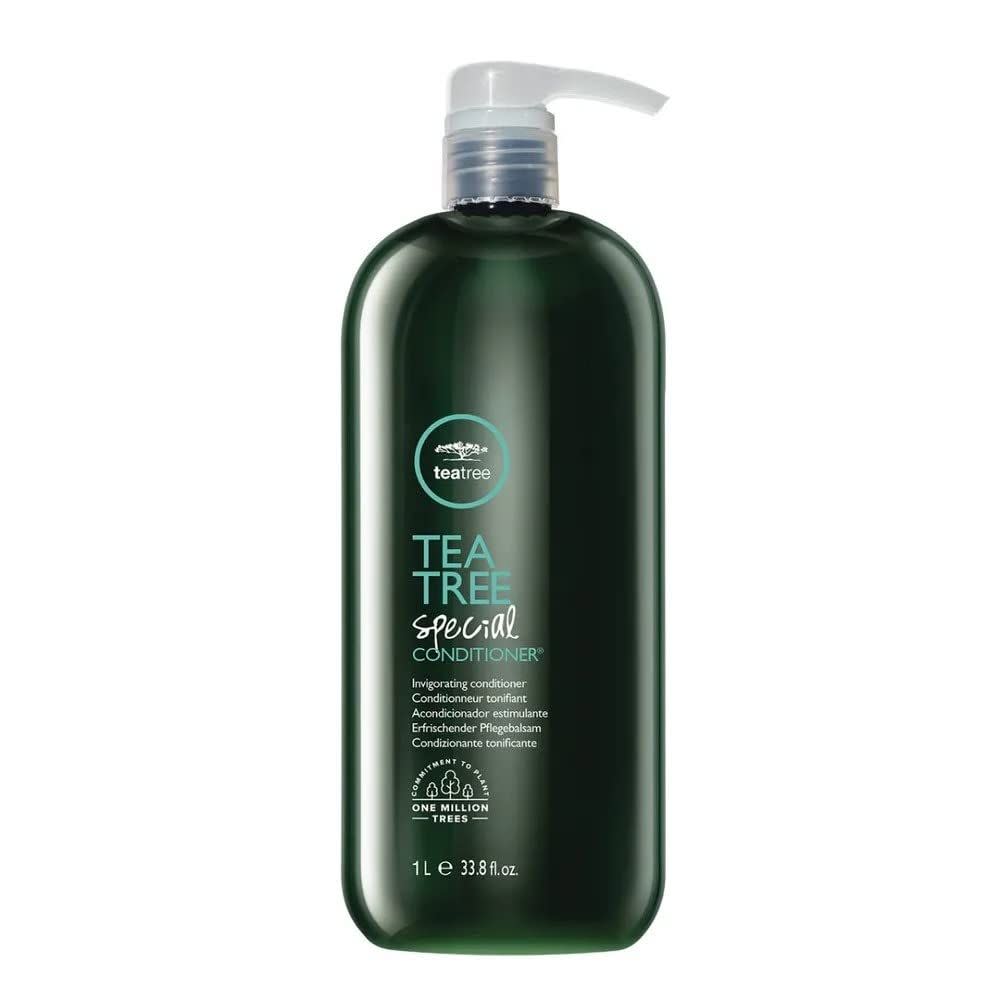
Tea Tree Special Conditioner
$48.00
amazon.com
Tea Tree Oil Shampoo
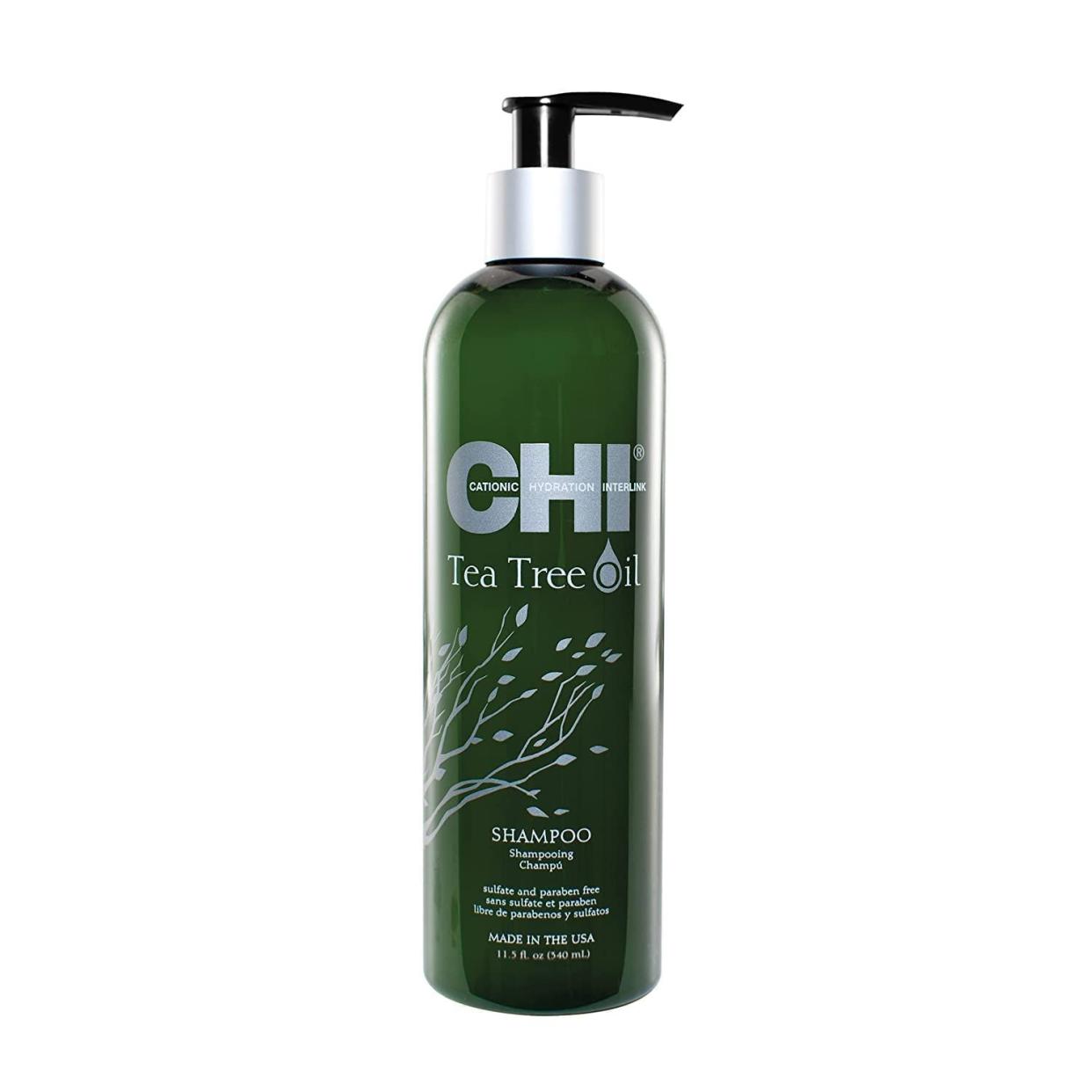
Tea Tree Oil Shampoo
$11.49
amazon.com
Scalp Revival Charcoal + Tea Tree Cooling Hydration Scalp Mask
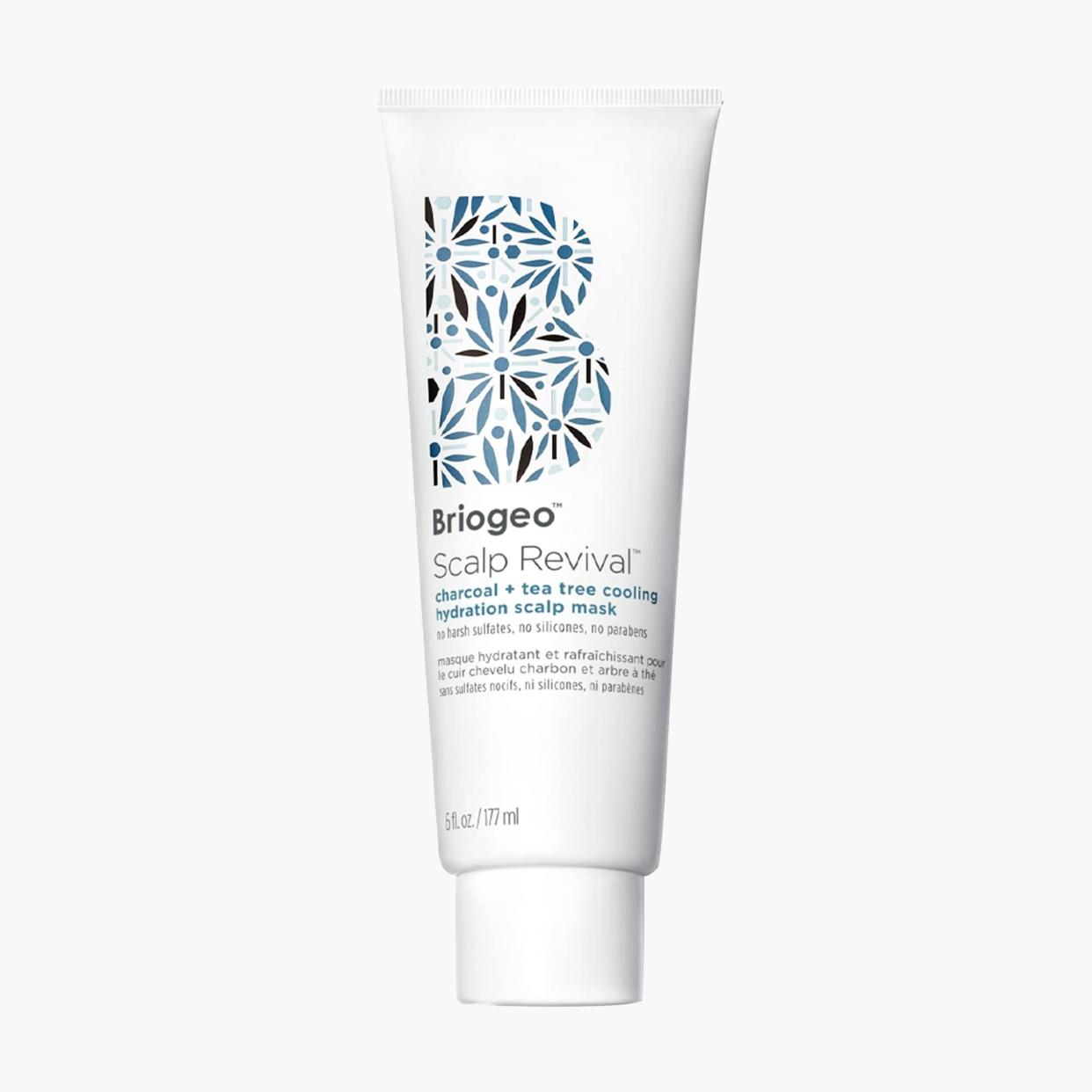
Scalp Revival Charcoal + Tea Tree Cooling Hydration Scalp Mask
$34.00
amazon.com
Tea Tree Essential Oil
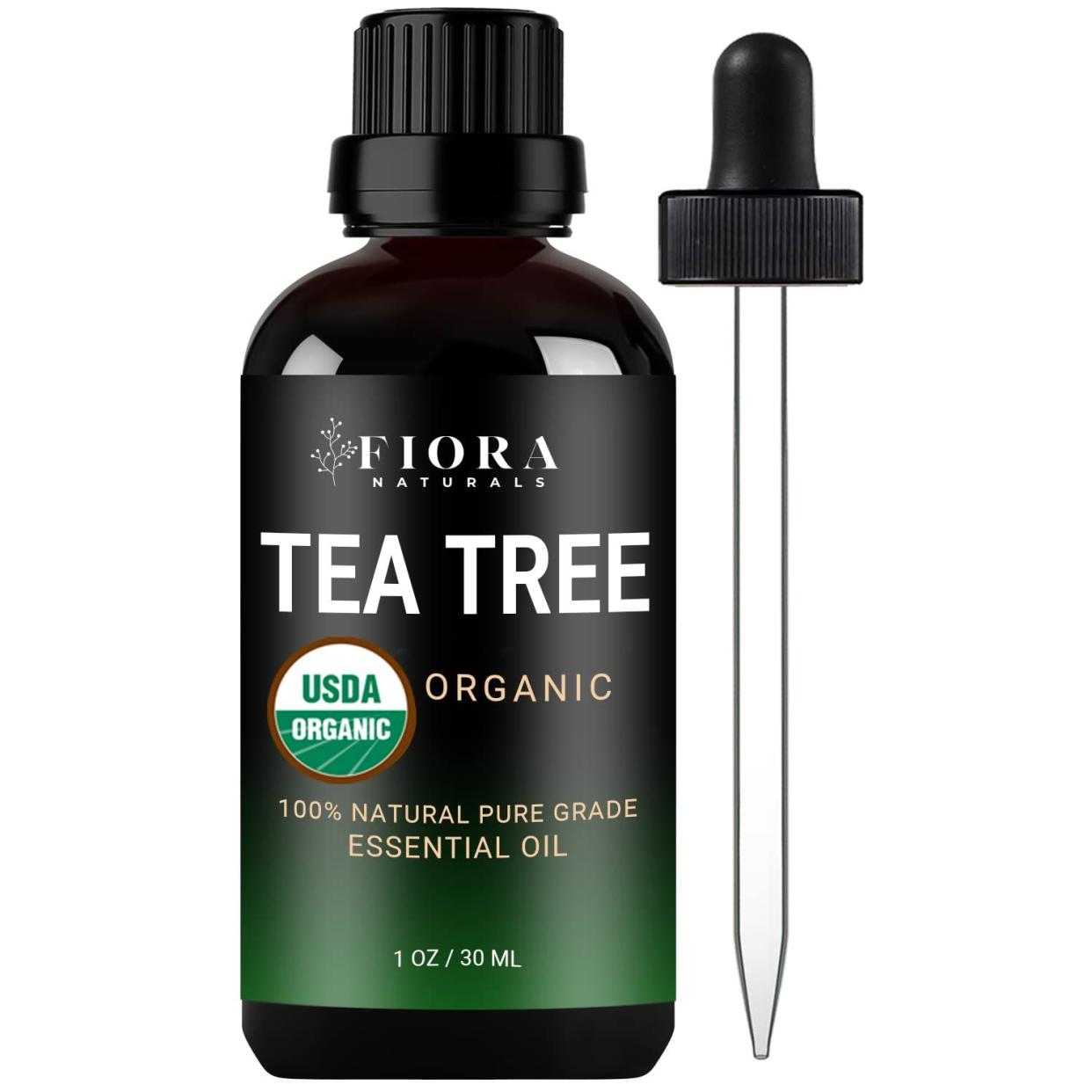
Tea Tree Essential Oil
$11.99
amazon.com
Organic Sweet Almond Oil
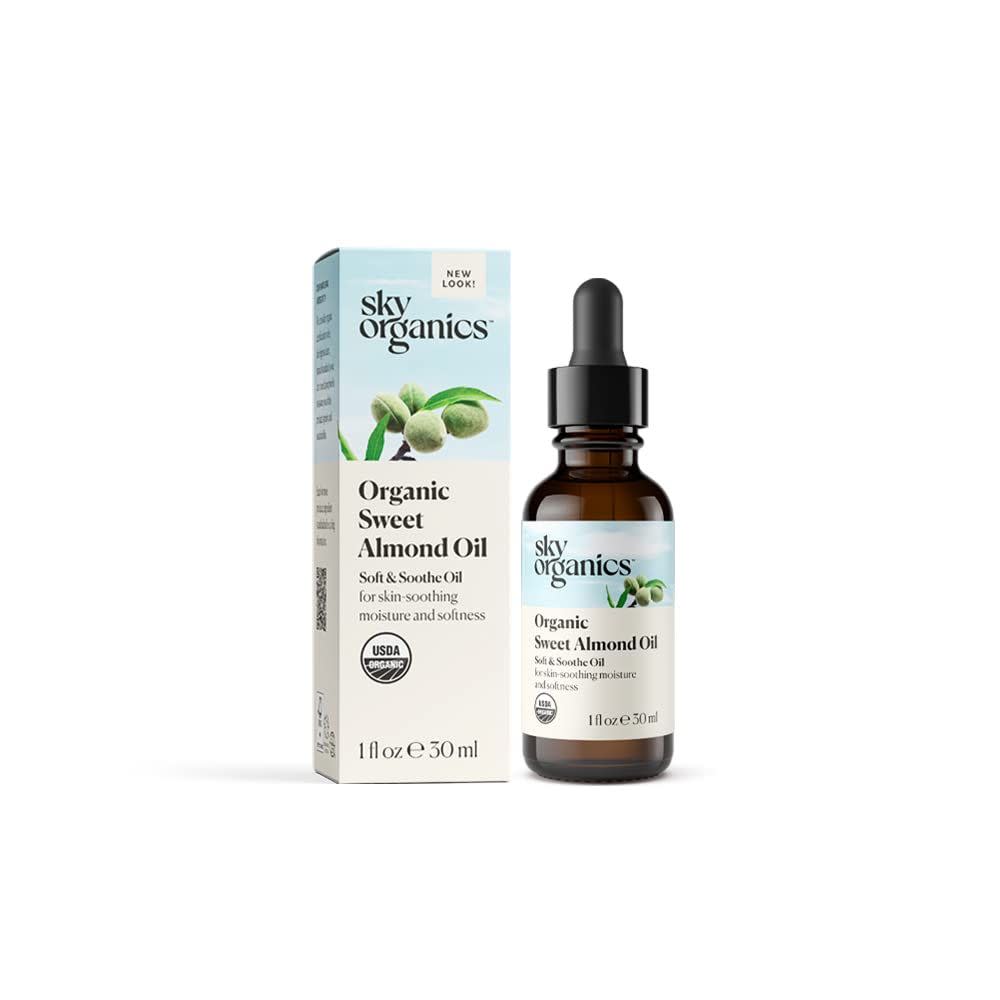
Organic Sweet Almond Oil
$9.99
amazon.com
How often can I use tea tree oil on my hair?
Sensitive skin or not, too much tea tree oil can lead to overexposure, so don't overdo it.“The pure form of tea tree oil should be used no more than two to three times per week because of the risk of skin irritation,” says Dr. Camp. “Skin care products that contain tea tree oil as an ingredient may be appropriate for daily use.”
If you're concerned about how often you can use it based on your particular needs, it's always a safe bet to reach out to your dermatologist for a more personalized recommendation.
You Might Also Like
